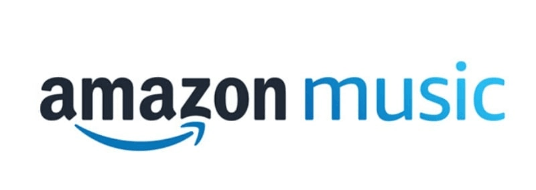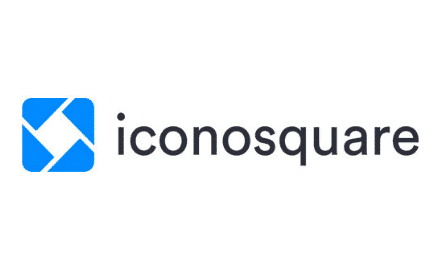Introduction
Ian Cleary is the founder of RazorSocial and RazorAudit. They provide independent marketing audits, smarter digital strategies, and unrivalled project support to businesses around the world.
He is a regular keynote speaker, an award-winning blogger and is an instructor of professional practice with Rutgers University in New York.
What You’ll Hear
- [1:36] About Ian and his background
- [2:50] Why Ian became an entrepreneur
- [5:37] The idea behind RazorAudit
- [7:09] How Ian overcame confidence issues
- [11:12] Why websites don’t convert visitors into customers
- [13:20] Who’s responsible for making a website convert?
- [16:57] Quick tips to improve your website
- [19:25] The most interesting place Ian has visited
Proudly Sponsored By:
About Ian and his Background
Ian is based in Ireland and started in the world of technology. He provided tech support at software companies before going on to head up a range of different teams.
He drifted into entrepreneurship, selling products part-time, before setting up his own business. Originally called RazorCoast, he offered social media training and consultancy.
Ian decided to set up a technology blog about social media – RazorSocial – which became an international success. This led to speaking, online training and coaching, and he’s been doing that for several years.
Why Ian Became an Entrepreneur
Ian says he got bored at work. He would go into a team and make sure they had the equipment and processes they needed to run effectively, but he was so good at delegating that he often didn’t have much to do.
The same thing happened when he moved to different companies. A smaller company he worked at was acquired twice, and he found it challenging in a very large company. He and his wife left their jobs, downsized the house and started their entrepreneurial journey.
The Idea Behind RazorAudit
Ian explains that he likes to have something new to work on so he doesn’t get bored. A lot of people asked him for website audits, and he noticed that the businesses offering these were agencies.
As he doesn’t build sites, he can serve more as a strategic adviser. There’s no independent website auditor who only does audits, so there was a gap in the market. Clients like getting an independent view of what’s wrong with their website, and not being told that they need a whole new site.
How Ian Overcame Confidence Issues
At the early stage of being in business, Ian said he made a lot of mistakes, and he used to get annoyed with himself. Over time, he was able to accept that it was part of entrepreneurship. “I’m very action-orientated, and I often make decisions too quickly. In the past, I’d say yes to everything; now, I take time to think about things.”
Ian also got good advice from serial entrepreneur Bill Lau: “It’s not about the mistake you make; it’s what you do after that mistake.” Entrepreneurs give themselves a hard time for a few weeks and then get over it, but Ian has learned to get over things quicker.
He does turn away opportunities, and it’s hard to learn to do that. At the beginning we say yes to everything, but it means that sometimes we can’t commit ourselves fully to all the things we’ve got going on.
Why Websites Don’t Convert Visitors into Customers
Most of the time, Ian says, they’re badly designed and not focused on conversion. Calls to action aren’t clear, contact forms don’t work or the site doesn’t load properly on mobile. The user experience is bad and the site isn’t simple enough.
Visitors often find it hard to work out what someone does, and why they’re different to everyone else. Simpler sites lead to more conversions. Make the next step clear, cut down the text and make the enquiry form short. You only need to make some basic changes to see results.
Who’s Responsible for Making a Website Convert?
The business owner can’t be expected to know how to build a highly-converting website, so they go to an agency looking for those technical skills. They should be able to design a nice site that also converts.
Sometimes, the business owner takes a list of demands to the agency and the agency fights back: ‘That’s not the way.’ When you have a carousel in the site banner they don’t convert, but the owner may insist, for example.
The agency needs to talk about conversion with the client more, says Ian, but they tend to focus on design, layout and content. The designer should make sure that conversation is higher on the agenda.
Ian gave the example of helping one client to use their testimonials more effectively, and to put them on the pages which related to the service mentioned in the testimonial.
The business owner should put some work into identifying some important things that the web designer needs to know about, and to brief them properly. What do they want to sell and who is the target audience, for instance?
Quick Tips to Improve Your Website
Ian says one of the most important things is to get your branding right. People’s first impressions of you are often via your website rather than by meeting you in person, so they create a perception of you.
Think about the colour palette, the typography and the logo and then how you present yourself. Have a clear tagline in your banner that explains what you’re about, and then a few lines underneath that explains how you do it.
From a conversion point of view, you need clear calls to action (CTA). In the top right-hand corner, have your CTA on each page so people know what to do.
This should work on mobile, too. Use landing pages for a specific service, so when you’re running ads, you can direct people to that, rather than your homepage.
Analytics is important, too. If you’re selling any products at all, you need to set up ecommerce tracking so you know exactly what you’re selling and which times are and aren’t generating sales. The analytics is how we know how good your site is.
You can enable ecommerce on Google Analytics, and then depending on your business, you can install a plug-in to track it for you.
The Most Interesting Place Ian has Visited
Ian travels a lot for speaking gigs, but he also recently went to Russia. “I thought Moscow was fascinating. I absolutely loved it. Every morning I’d walk down to Red Square and watch the guards march around the Kremlin. There’s so much history.”
Final Comments

Sponsored By:
Need to easily track your social media metrics in one unified space?
Imagine making data-driven decisions about future activities across Instagram, Facebook, Twitter, and LinkedIn in a few minutes.
Discover the power of Iconosquare, leading analytics and management platform for social media marketers. Peace-of-mind scheduling, time-saving reporting, and in-depth analytics are what Iconosquare is all about – it’s unlikely you’ll ever look back! You can try it for free for 30 days, and benefit from a 30% discount on any annual plan by visiting their website


















